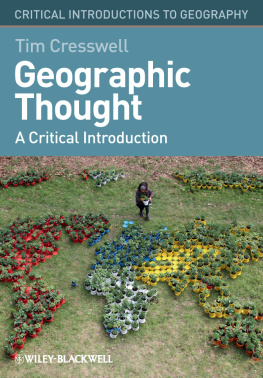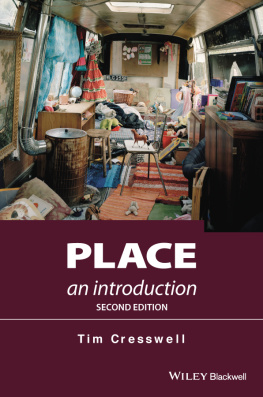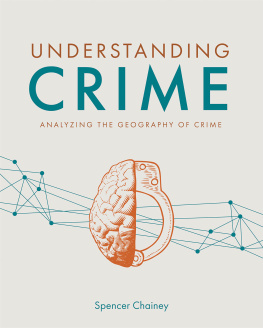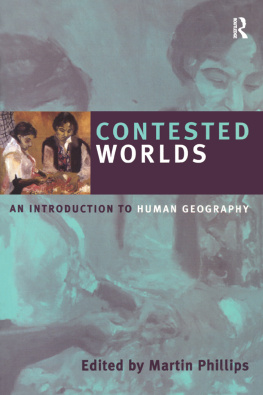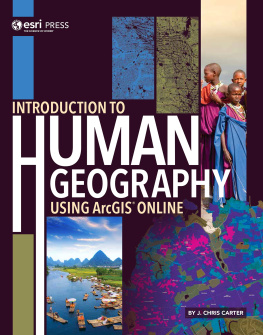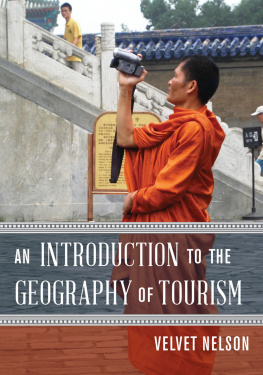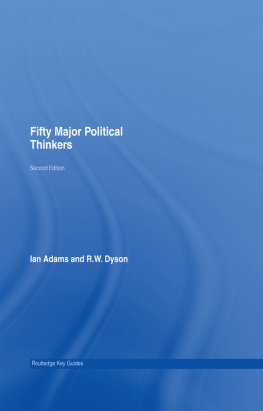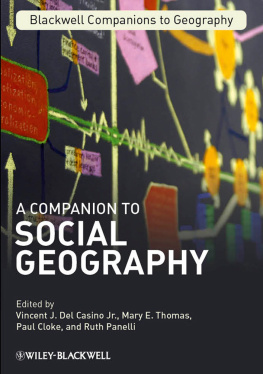
Critical Introductions to Geography
Critical Introductions to Geography is a series of textbooks for undergraduate courses covering the key geographical subdisciplines and providing broad and introductory treatment with a critical edge. They are designed for the North American and international market and take a lively and engaging approach with a distinct geographical voice that distinguishes them from more traditional and out-dated texts.
Prospective authors interested in the series should contact the series editor:
John Paul Jones III
Department of Geography and Regional Development
University of Arizona
Published
Cultural Geography
Don Mitchell
Geographies of Globalization
Andrew Herod
Geographies of Media and Communication
Paul C. Adams
Social Geography
Vincent J. Del Casino Jr
Mapping
Jeremy W. Crampton
Environment and Society
Paul Robbins, Sarah Moore and John Hintz
Research Methods in Geography
Basil Gomez and John Paul Jones III
Political Ecology, Second Edition
Paul Robbins
Geographic Thought
Tim Cresswell
Forthcoming
Cultural Landscape
Donald Mitchell and Carolyn Breitbach
This edition first published 2013
2013 Tim Cresswell
Blackwell Publishing was acquired by John Wiley & Sons in February 2007. Blackwells publishing program has been merged with Wileys global Scientific, Technical, and Medical business to form Wiley-Blackwell.
Registered Office
John Wiley & Sons Ltd, The Atrium, Southern Gate, Chichester, West Sussex, PO19 8SQ, UK
Editorial Offices
350 Main Street, Malden, MA 02148-5020, USA
9600 Garsington Road, Oxford, OX4 2DQ, UK
The Atrium, Southern Gate, Chichester, West Sussex, PO19 8SQ, UK
For details of our global editorial offices, for customer services, and for information about how to apply for permission to reuse the copyright material in this book please see our website at www.wiley.com/wiley-blackwell.
The right of Tim Cresswell to be identified as the author of this work has been asserted in accordance with the UK Copyright, Designs and Patents Act 1988.
All rights reserved. No part of this publication may be reproduced, stored in a retrieval system, or transmitted, in any form or by any means, electronic, mechanical, photocopying, recording or otherwise, except as permitted by the UK Copyright, Designs and Patents Act 1988, without the prior permission of the publisher.
Wiley also publishes its books in a variety of electronic formats. Some content that appears in print may not be available in electronic books.
Designations used by companies to distinguish their products are often claimed as trademarks. All brand names and product names used in this book are trade names, service marks, trademarks or registered trademarks of their respective owners. The publisher is not associated with any product or vendor mentioned in this book. This publication is designed to provide accurate and authoritative information in regard to the subject matter covered. It is sold on the understanding that the publisher is not engaged in rendering professional services. If professional advice or other expert assistance is required, the services of a competent professional should be sought.
Library of Congress Cataloging-in-Publication Data
Cresswell, Tim.
Geographic thought: a critical introduction / Tim Cresswell.
pages cm. (Critical introductions to geography)
Includes bibliographical references and index.
ISBN 978-1-4051-6940-0 (hardback) ISBN 978-1-4051-6939-4 (paperback) 1. Human geographyPhilosophy. I. Title.
GF21.C74 2013
910'.01dc23
2012031789
A catalogue record for this book is available from the British Library.
Cover image: Tintin Wulia. Nous ne notons pas les fleurs, Fort Ruigenhoek, 2011, multiple-channel video installation of game-performance and installation with video, durations and dimensions variable, colour, stereo, loop. Game-performance/installation view. Tintin Wulia. Courtesy of the artist and Kaap/Stichting Storm, Utrecht.
Cover design by Design Deluxe
This book is dedicated to three geographers in the making
Owen Alexander Jennings
Samuel Alan Jennings
Madison Rosina Jennings
Preface
A while ago Justin Vaughan at Blackwell approached me to write this book. I thought it would be straightforward. I had taught the second year theory course at the University of Wales, Aberystwyth and it seemed like writing up my lecture notes should not take very long and might even be a rewarding exercise. I could then use the book as the text for the class. So I said yes. I am not sure when that was. I dare not look at my contract. But it was at least six years ago and this book is at least four years late. Since then I have met with Justin every year at the annual meeting of the Association of American Geographers. It started with a lovely lunch in San Francisco and has since been demoted to a beer, and then a coffee, and then nothing at all. I owe Justin many apologies. It is a different decade now, I am at a different institution and Blackwell is part of Wiley. The book is 50% longer than I intended it to be. A lot of geographic thought has happened in the meantime.
Despite the time taken to write it, this book has become very important to me. Writing it has taught me how much I did and do not know. Using my lecture notes was never going to be enough. I have gone back and re-read many classic texts I have not looked at since I was an undergraduate. I have read many texts for the first time so it has become a significant process in the education of this geographer. Even at the end of the process especially at the end of the process I realize how much I do not know. Nevertheless, the experience of reading and writing on the theme of geographic thought has re-enlivened my relationship to a discipline I have always loved. I hope some of that enthusiasm will rub off on the reader over the many pages that follow.
I owe a debt of thanks to Justin Vaughan for twisting my arm again and again. Many thanks also to the geographers who have directly informed and inspired me over the years on matters of geography. I would also like to thank an inspiring array of post-graduate students who have stretched me and introduced me to any number of key thinkers and ideas beyond my normal comfort zones. Thanks finally, as always, to my family Carol, who read the whole thing, Owen, Sam, and Maddy.
Chapter 1
Introduction
Good evening. Welcome to Difficult Listening Hour. The spot on your dial for that relentless and impenetrable sound of Difficult Music. So sit bolt upright in that straight-backed chair, button that top button, and get set for some difficult music.
(Laurie Anderson Difficult Listening Hour, from Home of the Brave, 1986)
Hostility to theory usually means an opposition to other peoples theories and an oblivion of ones own.
(Eagleton 2008: xii)
If the scientific investigation of any subject be the proper avocation of the philosopher, Geography, the science of which we propose to treat, is certainly entitled to a high place
(Strabo 1912 [AD 718]: 1)
Geography is a profound discipline. To some this statement might seem oxymoronic. Profound geography seems as likely as military intelligence. Geography is often the butt of jokes in the United Kingdom. A school friend of mine who was about to start a degree in pure mathematics described my chosen degree as the science of common sense. I once appeared on a public radio quiz show in the United States. When the host asked me what I did and I explained I was a geography student, he asked what geographers had left to do surely we know where Milwaukee is already? I mumbled an apologetic answer. Taxi drivers ask me to name the second highest mountain in the world, trying to catch me out by avoiding the obvious first highest. My parents thought I was going to be a weather forecaster. So why is geography profound? Why indeed would the classical Greek/Roman scholar Strabo (more on him in Chapter 2) suggest that geography deserves a high place and that it constitutes philosophy?
Next page
